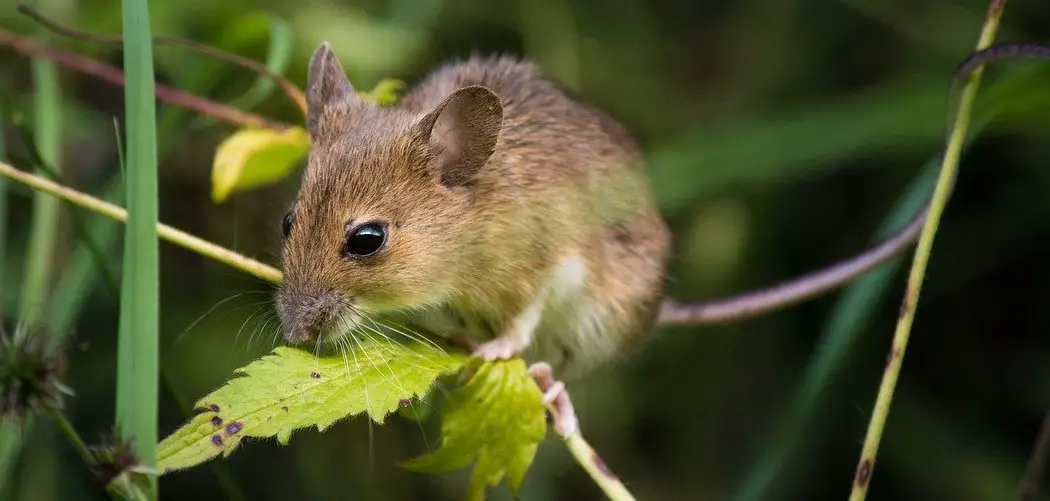Houseplants are much loved in today’s world, but if you are here you probably found holes in your houseplant’s soil or something has eaten its leaves.
Mice can have disastrous consequences on your home, but could it be that houseplants attract them, to begin with?
Here’s If Houseplants Attract Mice:
Houseplants don’t attract mice and they certainly won’t bring mice into your house, as they don’t supply mice with food. Although rare, mice might use your houseplants to hide or to burrow in and store food, which can be damaging to both the plant and your home.
However, there are a few things you can do to deter mice from ruining your houseplants:
What Is Digging In Your Houseplants?
If you have no pets and your houseplants stay indoors at all times, rodents are the ones digging in your houseplants. If the holes are small or there isn’t a lot of soil dug around the plant, chances are that mice are responsible.
They may only disturb the surface of the soil if they are just looking to bury food there. If this happens, you’ll probably see disruption on the surface but no actual tunnels.
Alternatively, if the mice are actually living in the plant pot, you will probably see small tunnels curving down toward the bottom of the pot.
Often, if mice are using the pot for storing their food, they will keep disturbing the soil in different places, and may make a lot of small holes close to the surface.
This can be messy and may result in soil being spilled onto the floor.
If you find you are frequently cleaning up around the plants, it’s likely that mice are digging in them.
Do Mice Live In Houseplants?
Although mice can live in plant pots, this is somewhat unusual, especially in small containers. There needs to be enough space in the pot for the mouse to build a nest and start a colony, which there often won’t be.
It is more likely that the mouse will dig down in search of food, or will use the surface of the soil for burying food.
Houseplant pots could make reasonably good homes for mice, although if you keep the soil damp, it is unlikely that a mouse will move in.
However, if a pot is suitable and the mouse has not found a more appealing (and often drier) location, it might choose to nest in a plant pot.
This is more likely with houseplants where the soil is loose, particularly those that have recently been repotted. It is also more likely if the plant prefers a dry environment and infrequent watering, because the mouse will not enjoy getting wet.
Some plants do provide a suitable nest site for mice, but many do not.
Do Mice Dig Up Houseplants?
Usually, the mouse will simply dig down among the roots creating holes, rather than directly uprooting the plant. It is somewhat unusual for a mouse to dig up a houseplant, but this could happen if the plant only has shallow roots and the mouse goes under them.
Despite that, the mouse could still do major damage to the roots, especially if they grow in a dense ball and it wishes to get to the center, which may be dry and feel safe.
The mouse might gnaw its way through the roots, or push some of them out of its way, which could partially uproot your plant.
Can Mice Kill Your Houseplants?
Yes, mice can certainly kill houseplants, especially ones that are small and vulnerable. A mouse could kill your plants just by damaging them through digging and root disruption, or it might actively eat the plant.
How much your plant can survive the abuse will depend on what kind of plant it is.
Mice may burrow underground and gnaw on the plant’s roots, particularly if food is in short supply and the mouse is very hungry.
It is also possible for a mouse to poison a plant if it keeps burying unsuitable foods in the soil and these cause nutrient imbalances or fungal spread.
Most of the damage is likely to be down to disruption, however.
If you have a houseplant that is looking a bit sick and the mice keep digging around its roots, consider putting a board or pebbles across the top of the soil.
This will stop the mice from being able to dig down.
A good layer of gravel might also deter the mice.
How To Stop Mice From Eating Your Houseplants
The best way to stop mice from eating your houseplants is to remove the mice from your home. However, as a first step, sprinkle a bit of peppermint oil on the leaves and the soil or the plant.
Then stuff the holes in your plant’s soil with steel wool to prevent access.
Next, consider calling a pest control service, or borrowing a cat. Even if the cat doesn’t hunt the mice, its scent may be enough to drive them away.
Mice don’t usually eat houseplants. Leafy greens are not high on their list of favorite foods, and they will usually opt for other food sources if these are available.
However, they may sometimes nibble on plant stems, particularly new growth.
They might also attack the roots of certain plants. This could be very damaging, especially if you have a lot of mice.
In the long run, it will be almost impossible to stop mice from eating your houseplants if they remain in the house, although they will generally go for other food sources if these are available.
Certain plants won’t be eaten by mice, but if you have a plant that they nibble on, it is very hard to deter them except to get rid of the mice entirely.
How To Keep Mice Away From Houseplants
Covering the surface of the soil in gravel and keeping it damp is one option that will help to keep mice away from your houseplants. Regularly moving and disturbing the plants should also help. Mice do not like objects that move, as it makes it hard for them to assess the threat level.
They will generally avoid plant pots that have recently changed position.
Dealing with a mouse infestation is hard and it won’t be easy to keep mice away from your plants, but there are a few other things you should do.
A few other possible deterrent methods include:
- Sprinkle peppermint oil around the rim of the plant’s pot and the surface that it sits on (this will need reapplying every couple of days).
- Choose strong-smelling plants such as rosemary and lavender, as mice dislike the smell of these. You can also place sprigs of them on the surface of another plant’s soil.
- Cut off the source of food. Mice are very unlikely to have come inside just to get at your houseplants, so find their true source of food and remove it. They may be getting into pet food as well as human food, so make sure you cover every avenue.
- Keep the soil damp. Mice do not like dampness, and may move out if you can keep the soil wet. However, there is a risk of damaging your plant if it also prefers dry conditions.
Try any or all of these, and you will hopefully find that your plants are kept safe from mouse invasions.
Which Houseplants Attract Mice?
No houseplant really attracts mice because they tend to be more attracted to plants that they can eat, so be aware of this when choosing what to grow inside. Any edibles may draw mice in, and this includes strawberry plants, seedlings with tender stems, bulbs such as crocuses and irises, and things like beans.
You might be growing seedlings indoors ready for planting out later, and all of these will appeal to mice.
More than the plant itself, fertilizing with leftover food can also attract mice to your plants, so avoid it if you have mice in your house.
There are few proper houseplants that directly attract mice, however, and you shouldn’t need to worry too much about choosing mice-free varieties.
Just get houseplants you like, and deter mice in other ways.
Houseplants That Repel Mice
There are certain plants that mice hate the smell of, and growing these may help to keep mice out of parts of your home. For example, you could try:
- Peppermint
- Lavender
- Rosemary
- Eucalyptus
- Wormwood
- Bay
- Geraniums
There is some debate over whether alliums attract or repel mice, so it may be better to avoid these.
Some mice dislike the smell, but there are claims that they will eat the bulbs.
Try to choose plants that have strong perfumes, as these tend to be avoided by mice.
Houseplants Toxic To Mice
There are many houseplants that are toxic to mice, like Philodendron, Aloe, Peace Lily, Dumb Cane, Pothos, etc. However, mice won’t eat houseplants actively toxic to them and if they do, it’s likely they will survive it because they are tough.
On the whole, mice will simply not eat a houseplant that is dangerous to them.
They are also very intelligent and learn from others, so if one eats something poisonous the others will learn and stay away from it.
They avoid many dangerous plants in the wild, such as poison ivy and oak, and they manage to survive well.
It is likely that they have a strong sense of what they should and shouldn’t eat.
Plants with particularly strong smells, such as Geranium and Eucalyptus, might be toxic to mice, but they would likely not eat these.
There is therefore little point in trying to choose houseplants that are toxic.
Final Thoughts
Houseplants may attract mice as a place to store their food and to shelter, especially if the plant has a large, dry pot with plenty of loose compost in it.
Mice are unlikely to eat houseplants, but may occasionally nibble them, so be aware of this if mice are nesting among your plant’s roots.


